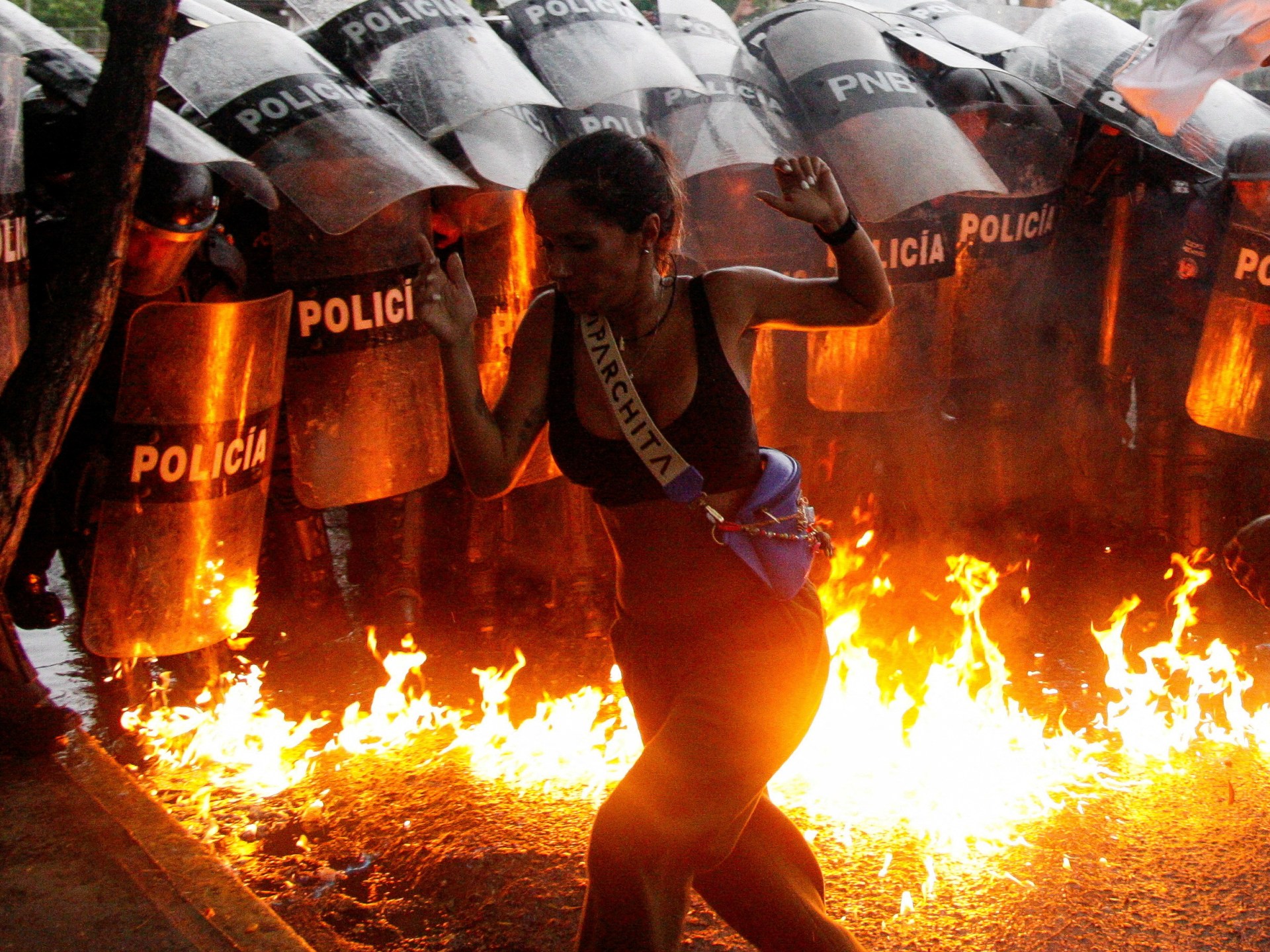
Venezuelan security forces have fired tear gas and rubber bullets at protesters angered by the announcement that Nicolas Maduro won Sunday’s presidential election.
Thousands of people flooded the streets of the capital, Caracas, on Monday, chanting “Freedom, freedom!” and “This government is going to fall!” The opposition has questioned the official results announced by the electoral commission, a doubt backed up by several countries around the world.
Regardless, the National Electoral Council (CNE) has certified Maduro’s re-election for a third six-year term until 2031.
At least two statues of Hugo Chavez, the late socialist icon who led Venezuela for more than a decade and handpicked Maduro as his successor, were knocked down by protesters around the country.
The National Guard fired tear gas and rubber bullets at protesters, many wearing motorbike helmets and bandannas tied over their faces for protection. Some responded by throwing rocks and Molotov cocktails.
Maduro has dismissed the international criticism and doubts about the result, claiming Venezuela was the target of an attempted “coup d’etat” of a “fascist and counter-revolutionary” nature.
Opposition leader Maria Corina Machado told reporters that a review of voting records available so far clearly showed that the next president “will be Edmundo Gonzalez Urrutia,” who took her place on the ballot after she was barred by Maduro-aligned courts.
The elections were held amid widespread fears of fraud by the government and a campaign tainted by accusations of political intimidation.
Pollsters had predicted a resounding victory for the opposition.
In the early hours of Monday, the CNE said Maduro had won 51.2 percent of votes cast compared with 44.2 percent for Gonzalez Urrutia.
The opposition cried foul, prompting Attorney General Tarek William Saab to link Machado to an alleged “cyberattack” seeking to “adulterate” the results.
The outcome led to concern and calls for a “transparent” process from the United Nations, United States, European Union and several countries in Latin America.
The CNE has not provided a detailed breakdown of the result.
Sunday’s election was the product of a deal reached last year between the government and opposition.
That agreement led the United States to temporarily ease sanctions imposed after Maduro’s 2018 re-election, rejected as a sham by dozens of Latin American and other countries.
Sanctions were snapped back after Maduro reneged on agreed conditions.
EMEA Tribune is not involved in this news article, it is taken from our partners and or from the News Agencies. Copyright and Credit go to the News Agencies, email news@emeatribune.com Follow our WhatsApp verified Channel





